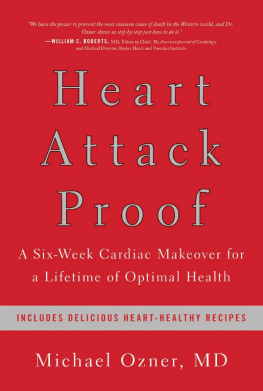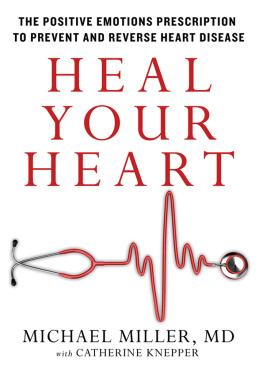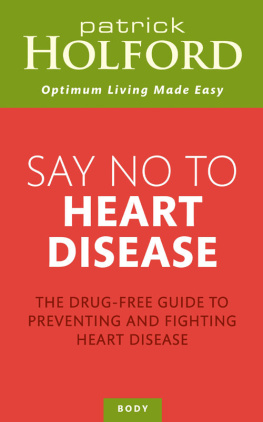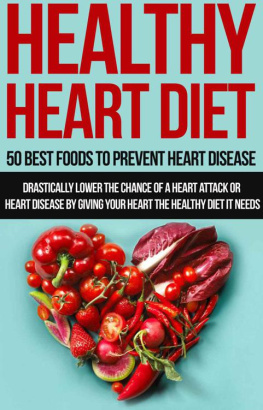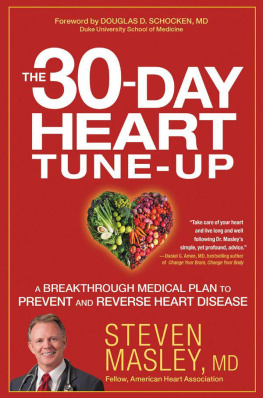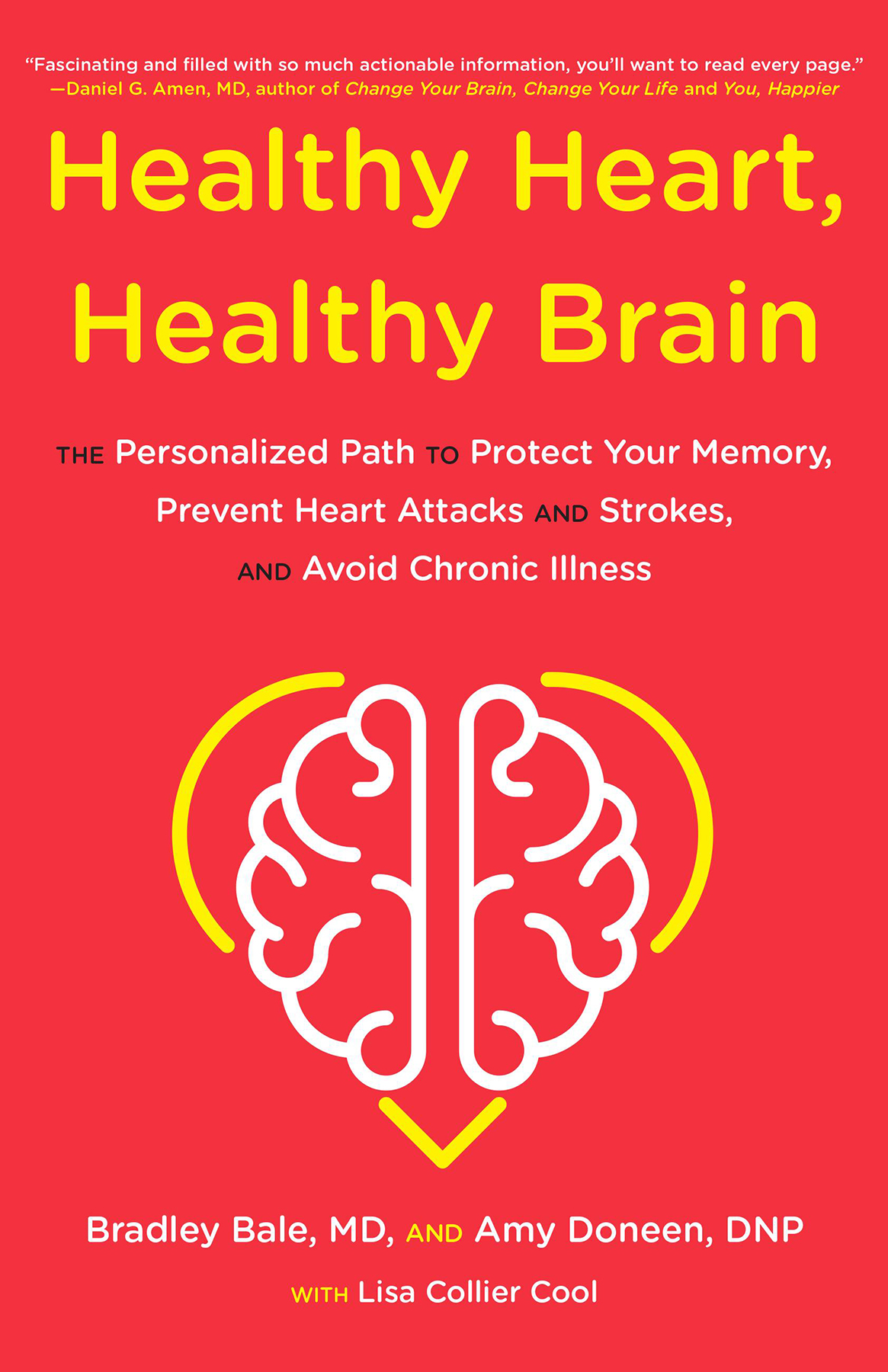
Copyright 2022 by Bradley Bale, MD and Amy Doneen, DNP with Lisa Collier Cool
This book is intended to supplement, not replace, the advice of a trained health professional. If you know or suspect that you have a health problem, you should consult a health professional. The author and publisher specifically disclaim any liability, loss, or risk, personal or otherwise, that is incurred as a consequence, directly or indirectly, of the use and application of any of the contents of this book.
Hachette Book Group supports the right to free expression and the value of copyright. The purpose of copyright is to encourage writers and artists to produce the creative works that enrich our culture.
The scanning, uploading, and distribution of this book without permission is a theft of the authors intellectual property. If you would like permission to use material from the book (other than for review purposes), please contact permissions@hbgusa.com. Thank you for your support of the authors rights.
Little, Brown Spark
Hachette Book Group
1290 Avenue of the Americas, New York, NY 10104
littlebrownspark.com
twitter.com/lbsparkbooks
facebook.com/littlebrownspark
Instagram.com/littlebrownspark
First ebook edition: March 2022
Little Brown Spark is an imprint of Little, Brown and Company, a division of Hachette Book Group, Inc. The Little, Brown Spark name and logo are trademarks of Hachette Book Group, Inc.
The publisher is not responsible for websites (or their content) that are not owned by the publisher.
The Hachette Speakers Bureau provides a wide range of authors for speaking events. To find out more, go to hachettespeakersbureau.com or call (866) 376-6591.
Book illustrations by Moss Freedman
ISBN 978-0-316-70557-8
E3-20220113-JV-NF-ORI
Beat the Heart Attack Gene
To my wife, Pam, whose love has nurtured me for more than fifty years. She nudged me down the path of preventative care with unwavering support. To my daughter, Brittany, who evolved into my sage colleague and nurse. To my sons, Forrest and Jacob, for their steadfast belief in my healthcare goals. To our beloved grandchildren, Olivia, Adeline, James, Elliott, Shelby, Peter, Ethan, Marlie, and Cora, may the information in this book enhance your well-being. To my siblings, Shelby, Daryl, Richard, and Phillip, who have regaled in my pioneering spirit. I also dedicate this book in loving memory of my parents, Joy and Garnett Bale, my sister Barbara, my parents-in-law, June and Peter Barile, and my childhood housekeeper, Mabel Neal. They all encouraged me to follow my dreams and believed in my ability to achieve them. Their spirits continue to infuse my passion for improving the health of others.
Bradley Bale, MD
In loving memory of my beloved father, Wally Butch Hubbard. During the writing of this book, it has been heartbreaking to witness the devastating effects of dementia claim the life of my strong and loving father. My wish is that this book will prevent other families from suffering this catastrophic illness. To my husband, Daren, your love and support have allowed me to follow my passion for my lifes work in this field of medicine and prevention. This journey would not be possible without you by my side. To our children, you have shaped my life and taught me so many lessons. Sydney: You teach me to keep a steadfast focus on my goals. Devin: You inspire me to grab hold of all life has to offer. Sophie: You motivate me to follow my heart. To each of you I say, Follow your dreams as you have supported me to follow mine. I love you all.
Amy Doneen, DNP
To my husband and best friend, John: Your love, encouragement, wit, and sage advice has nurtured me throughout our life together and during the writing of this book. To our daughters, Alison, Georgia, and Rosalie: I rejoice in your many successes and accomplishments and am proud to be your mom. To our beautiful and brilliant granddaughters, Carson and Alice: you lift my heart and spirit. In loving memory of my father, Oscar Collier, my first agent, editor, and mentor: I shall not look upon your like again. You were gone too soon.
Lisa Collier Cool
Before we present the revolutionary science behind arteriologyand how this pioneering new medical specialty bridges a dangerous gap in our healthcare system that puts unsuspecting patients in perilallow us to share a few of the personal experiences that fuel our passion for saving lives, hearts, and brains. One of coauthor Bradley (Brad) Bales earliest childhood memories is watching his fathera famous physiciantrying, futilely, to save the life of Brads paternal grandmother after she suffered a massive heart attack at sixty-eight. Just five years old at the time, he will never forget seeing her face in the casket, the smell of the flowers, and the tears in his fathers eyes.
As a teenager, Brad mourned the passing of his maternal grandfather, Sidney, from a massive stroke at sixty-five, shortly after Sidney and his wife, Elizabeth, had moved to Beverly Hills, California, in anticipation of a comfortable retirement. Soon afterward, ElizabethBrads maternal grandmotherdeveloped such severe dementia that she was no longer able to manage on her own. She spent her final years living with Brad and his family, in such a state of bewilderment that she no longer recognized them. Decades later, he also witnessed the slow death of his mother from heart failure triggered by a heart attack. In 1997, Brad faced the possibility of losing yet another family member when his eldest brother, Shelby, suffered a near-fatal heart attack at sixty.
A driving factor behind Amys study was her own frightening family history: Shes lost three of her relatives to heart attacks, including her grandpa Jack, a kind, handsome man who never lost his sense of humor, even as he spent the last years of his life battling Alzheimers disease (AD), the most common form of dementia. Compounding Amys intense sorrow at watching AD gradually rob her grandfather of his sharp memory and charming personality was seeing the devastating effect of his illness on her father, Wally Butch Hubbard, who spent most of his life in dread of losing his memory. Amy was extremely close to her father and prayed that hed be spared this disease, which sometimes runs in families. At the time, however, there was no proven way to prevent it. Wally, however, did take an important step to protect his heart and brain health: he quit smoking.
Four years ago, Wally, a retired county planning director, began showing the first signs of Alzheimers disease at seventy-five. He was a gentle giant, who stood six feet, five inches and weighed 300 pounds, but was remarkably light on his feet and an amazing dancer. He was also devoted to his eight grandchildren and regaled them with tales of his experiences as an Army captain and tank commander, stationed in Germany during the Vietnam War. As his disease progressed, he struggled to recall details of these stories and was no longer able to play cards and chess with his grandkids. Watching Wally disappear into a fog of forgetfulness was heartbreaking for Amy and her entire family, especially her brother, Brian, and Wallys wife Jan. As Wallys dementia rapidly worsened, they experienced the truth of an Alzheimers caregivers poignant observation about this scenario: Knowing the day is coming when your loved one wont know you is the most horrible feeling of all.
Ironically, during Wallys battle with Alzheimers disease, landmark studies were published in leading scientific journals reporting that with certain specific strategies that will be described in part two of this book, dementia may be preventable. Soon after that, the first guidelines for the prevention of Alzheimers and other forms of memory loss were published. That knowledge came too late for Wally, who died peacefully at seventy-ninethe same age his father didas his family was by his side, holding his hands one last time. Amy and her family miss him terribly, but know in their hearts that hes dancing and sending them hugs from above.


